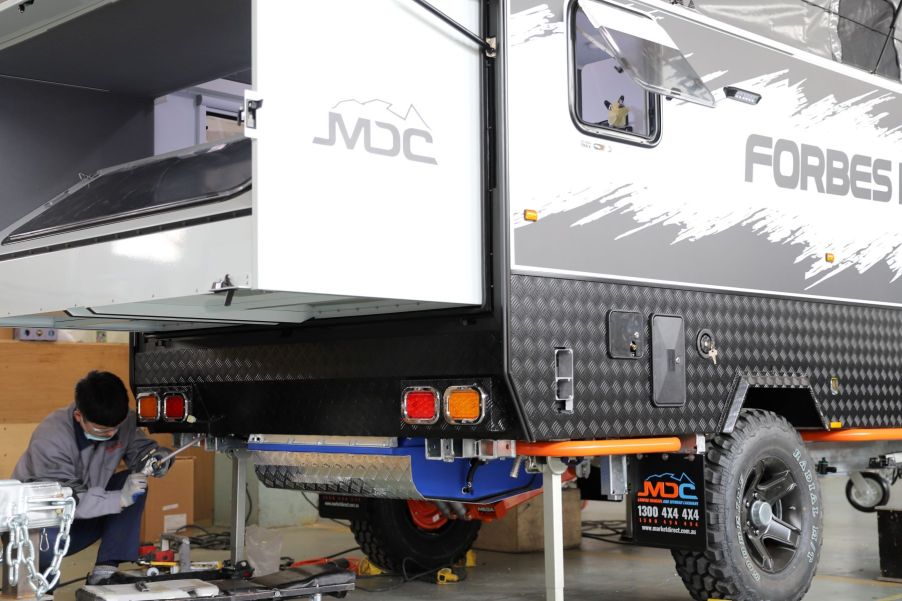
Is It Possible or a Good Idea to Plug My RV Into My House?
Some people park their RVs in the driveway of their homes and use them as guest quarters, office spaces, or a little getaway for their frustrated teens. So, can you plug it into your home’s electricity, or do you need something else to run appliances off of? Let’s take a look.
Can you plug an RV into your home’s electricity?

In a nutshell, the answer is yes, but there are a few things to keep in mind when doing that. The specific outlet you plug into will have a maximum amount of amps it will power, according to Drivin & Vibin.
So, if you’re using a plug-in receptacle that allows up to 15 amps of power, and your RV uses 30 amps, you’ll be limited on what appliances you can use. If you try to go over that amount, you’ll trip the breaker, cutting off power to your camper. If you plan to do this several times a year, you can have an outlet installed specifically for your RV.
Another thing to remember is that you will need a special plug-in adapter to power up your camper. Unless you have one of the pretty small units, your RV’s plug will have about four prongs, which won’t fit into a standard home’s outlet.
If you plug in the camper, you might want to know which appliances you can use. Those with high energy outputs might need to be kept off. They tend to use way more amperage than most of your smaller units.
What makes the recreational vehicle life so appealing?
Camping has always been popular, but it exploded these last few years when the pandemic hit and people got tired of staying home. Camper sales began increasing, and some even decided to make their RV life a more permanent thing. People love to travel, but they don’t always want to spend the money on hotels or vacation rentals along the way. An RV allows them to take their home with them, in a sense.
According to Lonely Planet, you still have space to invite friends over. You can cook meals, watch movies, shower, and sleep the night away in comfort, especially if you buy one of the most luxurious campers out there.
In some cases, those on the road full-time find a way to earn income while traveling. Some have YouTube channels, some just work remotely, and others have online businesses where they make passive earnings, like affiliate marketing.
One of the biggest benefits of living your life using a camper is spending more time in places you love, whether that be in the mountains, a beachy area, or in your family or friend’s driveway.
Tips on how to properly care for your RV
Whether you live an RV life full-time or part-time, you will need to keep your camper in good shape to prevent costly repairs down the road. To keep it running smoothly, the first thing you will want to do is to plan for inspections to be done at least once a year, if not more. If you plan to use it once or twice during the summer, and that’s it, then get it inspected before you leave on your first trip.
You will want to know if the tires are bad or if something appears wrong with one of the other major components before you leave. You don’t want to get stranded in the middle of nowhere with a broken-down RV. Deal with issues before you go so you can focus more on the trip and less on how to fix your camper.
Another big tip is to know your route inside and out before leaving. Pay attention to areas where there will be detours or low-hanging bridges that might pose a problem for your tall RV. Plan accordingly to avoid causing accidents along the way. It also wouldn’t hurt to let someone know where you’re going and which route you plan to take, just in case something goes wrong.
Plugging your RV into a home can be done, but you will need to be creative on which appliances you can use with the outlet you plug it into. Depending on how many amps you can use, you might need to avoid using major appliances like your central air conditioning system or your fridge.


